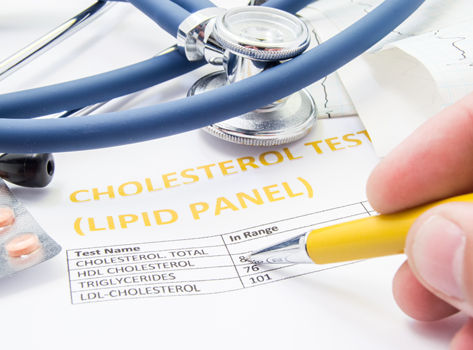Most of us have heard about cholesterol and the need to keep it in check. But what exactly is this waxy substance? Cholesterol is a fat-like steroid that the liver produces naturally, but we also eat cholesterol every day in animal products like meat, eggs and cheese. We need cholesterol to make hormones and vitamin D, as well as to maintain our cell walls, but high cholesterol can be a risk factor for dangerous conditions like heart attack and stroke.
Robert Fishberg, MD, a cardiologist with Atlantic Health System, shares what cholesterol is, how it functions in your body and how to keep it in check.
What types of cholesterol are there?
There are three main types of cholesterol:
- High-density lipoproteins (HDLs)
- Low-density lipoproteins (LDLs)
- Triglycerides
HDLs are considered “good” cholesterol, while LDLs are “bad” cholesterol. Generally, HDLs should be above 60 mg/dL, and LDLs should be less than 100 mg/dL. However, says Dr. Fishberg, patients should aim for even lower LDLs if they have other risk factors, such as high blood pressure, diabetes, kidney problems, smoking history or previous heart attacks.
“Lowering bad cholesterol is the primary goal of most cholesterol treatment,” says Dr. Fishberg. “As part of the Atlantic Medical Group Lipid Task Force, we are working to develop guidelines and help clinicians with ways of lowering cholesterol for their patients.”
Tracking your cholesterol
Tracking cholesterol often starts with a blood lipid panel, which measures total cholesterol, HDLs, LDLs, and triglycerides. If your total cholesterol, LDLs, or triglycerides are high, your doctor may recommend lifestyle changes or medications to help lower your numbers. They may also recommend additional discussions, testing or screening like:
- Family history
- Genetic testing
- Cardiac calcium score, which checks for plaque buildup in the arteries
- Lipoprotein(a) testing
“Lipoprotein(a) is a hidden risk factor for high cholesterol and is not usually measured,” says Dr. Fishberg. “If it is elevated, that could mean a greater risk for heart attack or stroke. At Atlantic Health, we are at the forefront of research for this factor and how we can treat it to lower cholesterol.”
When you begin testing for cholesterol also matters, according to Dr. Fishberg.
“There is evidence that the younger we begin testing patients’ cholesterol, the more we’re able to reduce their risk of heart attacks,” says Dr. Fishberg. “Many of the medications we prescribe to lower cholesterol, including statins, are safe even in the long term.”
How to manage your cholesterol
Managing cholesterol means maintaining a generally heart-healthy lifestyle. That includes:
- Controlling blood pressure and diabetes
- Exercising 30 minutes per day
- Maintaining or losing weight
- Quitting smoking
Dr. Fishberg recommends patients follow a Mediterranean diet that centers on vegetables, fish, beans and healthy fats. This diet has less saturated fat than other meat-heavy diets.
“Some cholesterol comes from what you eat while some comes from genetic and other factors,” says Dr. Fishberg. “If you have high cholesterol, diet and exercise are critical. That includes modifying what we eat to include less meat and fatty foods.”
For patients who need more help controlling their cholesterol, there are lots of oral and injectable medication options, including:
- Statins
- Adenosine triphosphate-citrate lyase inhibitors
- Bile acid sequestrants
- Cholesterol absorption inhibitors
- Fibrates
- Niacin
- Omega-3 fatty acid ethyl esters
- PCSK9 inhibitors
While statins are the most common medication used to lower LDLs, your doctor will be able to recommend the right medication or combination of medications to lower your cholesterol.
Be Proactive About Heart Health
Stay up to date with your annual visits to prevent and detect more serious issues and learn about risk factors for heart disease.













